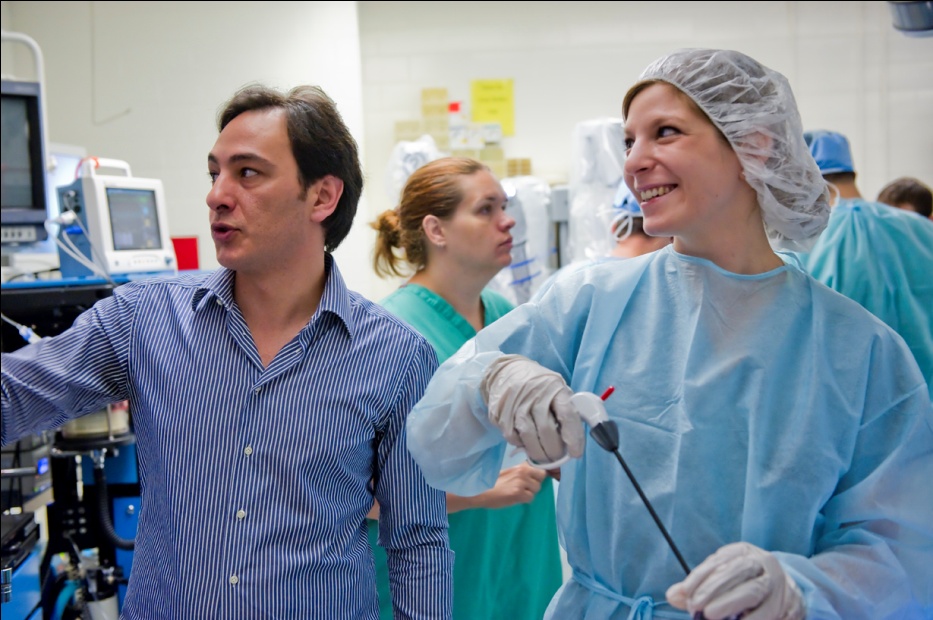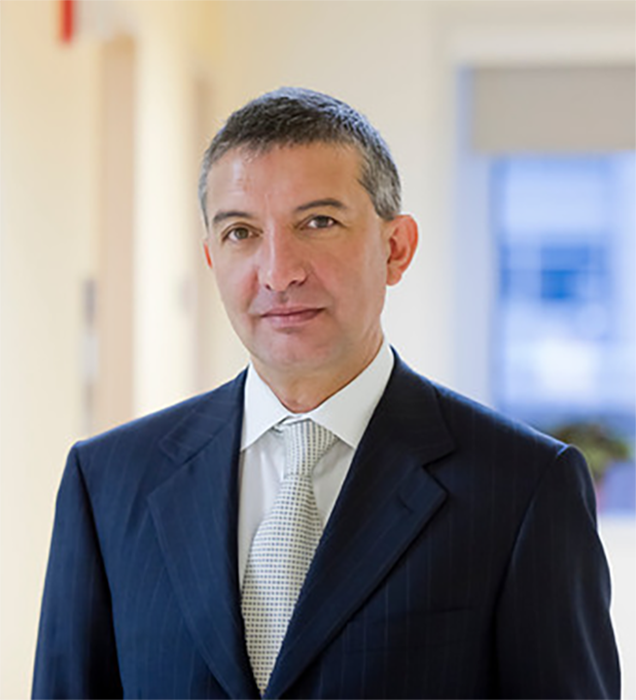Intro Heading link
The Department of Surgery at the University of Illinois College of Medicine is a hub of excellence and innovation, renowned for its cutting-edge contributions to modern surgical fields. Boasting the world’s largest non-urological robotic surgery program, a top-tier islet transplant program, and the most active living donor liver-bowel transplant program globally, our department is a leader in surgical advancements. Led by skilled surgeons featured in America’s Top Docs, we prioritize clinical expertise in our programs. Groundbreaking robotic-assisted surgeries showcase our commitment to shaping the future of surgical procedures. With accredited residencies and fellowships, we attract top talent for education and training. Our robust research efforts, particularly in transplantation surgery and Islet Cell programs, contribute significantly to the evolving landscape of surgical healthcare. The Department of Surgery at the University of Illinois College of Medicine is dedicated to excellence, innovation, and shaping the future of surgical practice.
Education Heading link

The Department offers two residency programs
links
The Department offers four fellowship programs
Fellowship
Offerings for medical students
Message from our Chairman Heading link

It is my pleasure to welcome you to The Department of Surgery at the University of Illinois College of Medicine. We are home to the largest program in non-urological robotic surgery in the world, among the top five islet transplant programs in the country and, the single most active living donor, liver-bowel transplant program, worldwide.
Clinical Programs: The clinical programs are staffed by leaders in their respective surgical fields, and we believe strongly in recruiting and retaining surgeons for their skill in the operating room, above all else. As a result, the department consists of highly skilled surgeons, who regular appear in America’s Top Docs listing, and who hold leadership appointments in national societies.
Some of our recent advances in clinical practice are primarily in the field of robotic surgery, and include:
- Robotic Assisted Kidney Transplant in Obese Patients
- Robotic Assisted Thymectomy for Treatment of Myasthenia Gravis
- Robotic Assisted Thyroidectomy without Neck Incision
- Robotic Assisted Whipple for Pancreatic Cancer
Over the past three years the program has performed multiple first in state and first in the nation surgeries that will revolutionize the way that surgery is performed in the future. The department continues to innovate and try to find new methods of performing surgeries that are less invasive for the patients, and result in better outcomes, with shorter less painful recovery times.
Education and Training: The faculty is dedicated to clinical as well as academic excellence. Our educational programs include fully accredited residencies in General Surgery and Plastic, Reconstructive, and Cosmetic Surgery. We have accredited fellowships in cardiothoracic, colon and rectal, minimally invasive and robotic; and transplant surgery. The department consistently invites guest to participate in research fellowship programs to study innovative new surgical techniques, or to participate in our research programs in robotic surgery and transplantation.
The department, also, trains surgeons from around the world in advanced laparoscopic and robotic-assisted surgery in the Advanced Robotic Training Lab. As part of the General Surgery team, visiting surgeons are taken through a course of case observation and lab-based training to learn complex robotic techniques. This is a unique program made possible by the presence of Dr. Pier Giulianotti, a national leader in the applications of robotic surgery.
Research: The current research focus for the department is in transplantation surgery, and we have a strong clinical trials unit, basic sciences and Islet Cell programs. The Islet Cell program is part of a national consortium investigating the potential to cure Type I Diabetes by transplanting insulin-producing islet cells from healthy donors to recipients. The department welcomes new surgeon scientists, and the university as a whole has a rapidly growing research portfolio supported by a strong research infrastructure.
In conclusion, the Department of Surgery is a vibrant and innovative place to be, and I am proud to be leading this group of clinician scientists who each make unique and powerful contributions to the university and the field of medicine. Please do not hesitate to contact me directly for any questions related to the Department of Surgery. Thank you for visiting our site.
Chairman Heading link
Enrico Benedetti
Phone:

Support Us Heading link
Supporting the research programs of the Department of Surgery directly benefits patients. Your contributions play a crucial role in advancing the department’s mission of providing world-class patient care, education, and training for future generations. Additionally, your generosity fuels the discovery of new techniques, technology, and treatments through creative innovation and cutting-edge research. These valuable investigations, made possible by the generosity of patients and donors, contribute to improving the health of all.